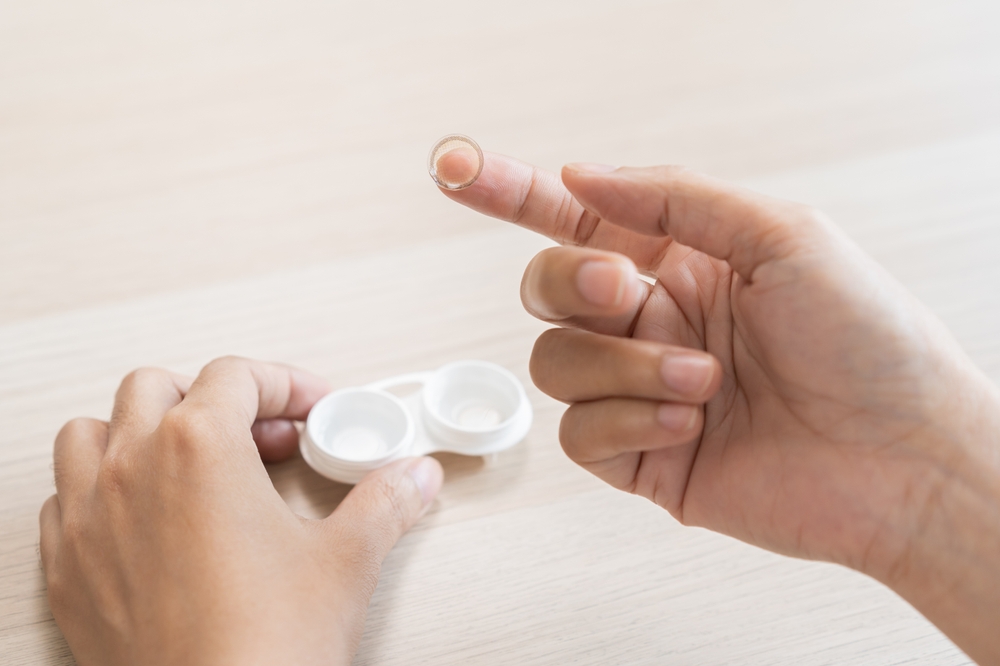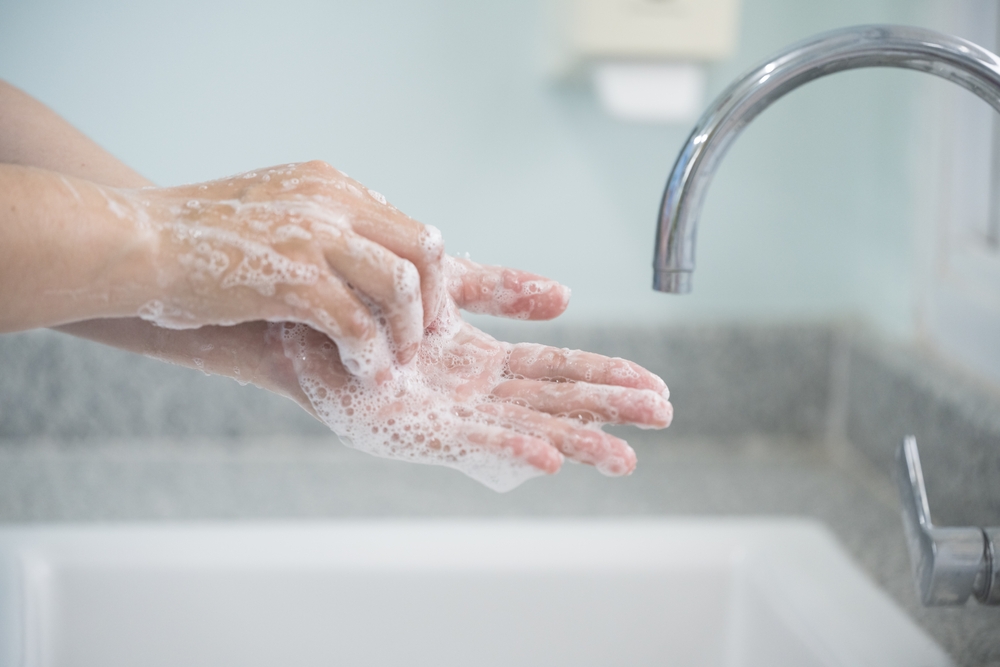If you’re one of the millions of Americans who wear contact lenses, you know they’re a wonderful alternative to glasses. They provide freedom of movement, unobstructed peripheral vision, and for many, a boost in confidence.
But to maintain healthy eyes and clear vision, proper contact lens storage is essential. Whether you’re new to contacts or have been wearing them for years, understanding the right storage techniques can make a significant difference in your eye comfort and health.
Keep reading to learn more about contact lenses, including how to properly store them!
Why Does Proper Contact Lens Storage Matter?

Improper storage of contact lenses isn’t just a matter of organization – it’s a serious health concern. Contact lenses that aren’t stored correctly can become breeding grounds for bacteria and other microorganisms that can lead to painful and potentially sight-threatening eye infections.
Improper contact lens care is one of the leading risk factors for various conditions, including infections, some of which can result in permanent vision loss if not treated promptly. Even less severe complications like red eyes, irritation, and discomfort can significantly impact your quality of life and productivity.
Different Types of Contact Lenses and Their Storage Requirements
Contact lenses aren’t a “one size fits all” solution. Different types of lenses have different storage requirements, and understanding these differences is crucial.
Daily Disposable Lenses
Daily disposable lenses are designed to be worn for just one day and then discarded. These lenses require no storage solution since you use a fresh pair each day.
This makes them an incredibly convenient and hygienic option, as they eliminate the need for cleaning and storage altogether. For daily disposable wearers, your “storage” routine is simply disposing of your lenses before bed and opening a new pair the next morning.
Bi-weekly and Monthly Lenses
Unlike daily disposables, bi-weekly and monthly lenses are designed for repeated use and therefore require proper cleaning and storage when not being worn. These lenses must be stored in a fresh contact lens solution every night to disinfect them and keep them hydrated.
The contact lens case plays a crucial role in the storage of these lenses. The case should be replaced every three months at a minimum.
Rigid Gas Permeable (RGP) Lenses
RGP lenses, also known as hard contact lenses, require special storage solutions specifically formulated for their unique material. These solutions help maintain the integrity of the lens material while also disinfecting them.
The Essential Steps for Properly Storing Contact Lenses
Regardless of which type of reusable contact lenses you wear, following these steps will help ensure they remain clean, comfortable, and safe for your eyes:
1. Wash Your Hands Thoroughly

Before handling your contact lenses, always wash your hands with a mild, fragrance-free soap and dry them. This simple step is your first defense against transferring bacteria and debris to your lenses or eyes.
2. Remove Lenses Carefully
Using the technique recommended by your eye doctor at Blaine Eye Clinic, carefully remove your contact lenses. For soft lenses, use the pad of your finger to slide the lens downward before pinching it gently to remove.
For hard contact lenses, you might use a small suction tool or a specific removal technique based on your eye’s shape.
3. Clean the Lenses Properly
Even if your solution is labeled “no-rub,” research shows that manually cleaning your lenses is more effective at removing deposits and microorganisms. Place the lens in the palm of your hand, apply a few drops of the recommended solution, and gently rub the lens with your fingertip for about 20 seconds on each side.
4. Rinse Thoroughly
After cleaning, rinse each lens thoroughly with fresh contact lens solution. Never use tap water, bottled water, or saliva to rinse your lenses, as these can introduce harmful microorganisms.
5. Fill the Case with Fresh Solution
Empty your contact lens case completely and rinse it with fresh solution (not tap water). Then fill each well with new solution up to the line indicated.
Using fresh solution each time is crucial. Never “top off” old solution, as this reduces its disinfecting power.
6. Store Lenses Properly
Place each lens in its designated well (right lens in the right well, left lens in the left well) and ensure the case is tightly sealed. Store the case at room temperature in a clean, dry place away from direct sunlight.
7. Case Maintenance
After inserting your lenses in the morning, empty the case completely, rinse with fresh solution, and leave it open to air dry during the day. This helps prevent bacterial growth in the case between uses.
When to Consult Your Eye Doctor

Contact lens wearers should schedule annual comprehensive eye exams and contact lens evaluations. During these visits, your Blaine Eye Clinic doctor will assess not only your vision needs but also the health of your eyes and how they’re responding to contact lens wear.
However, don’t wait for your annual visit if you notice any of these signs:
- Persistent discomfort or pain
- Redness that doesn’t resolve quickly
- Light sensitivity
- Blurry vision that doesn’t clear
- Unusual discharge from the eye
These symptoms could indicate an infection or other complication requiring prompt attention.
Protect Your Eyes, Preserve Your Sight
Proper contact lens storage is a critical component of eye health for contact lens wearers. By following the guidelines and the specific recommendations of your Blaine Eye Clinic doctor, you can minimize your risk of complications and maximize the comfort and clarity your contact lenses provide.
Remember that contact lens prescriptions typically expire after one year, meaning you’ll need to see your eye doctor annually to renew your prescription. These annual visits are an excellent opportunity to review your storage and care routine and address any concerns.
Do you have questions about which type of contact lenses might be best for your lifestyle and vision needs, or how to optimize your contact lens care routine? Schedule an appointment at Blaine Eye Clinic in Blaine, MN, today!





